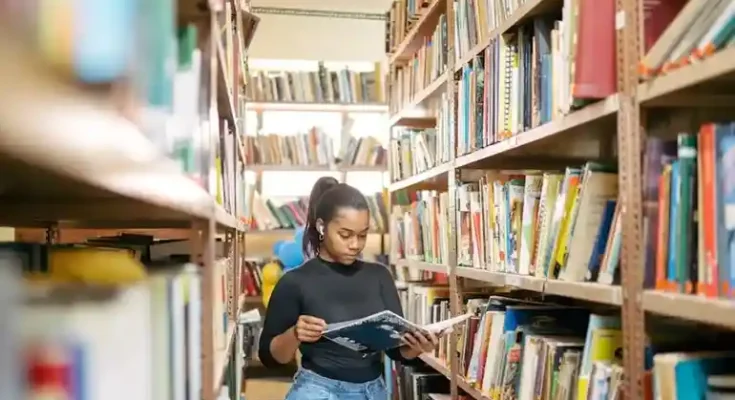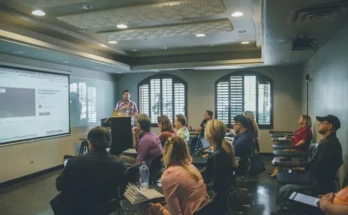Introduction to the New Era of Education:
Education today is no longer limited to chalkboards, lecture halls, and final exams. It has grown into a multi-layered experience, expanding far beyond traditional classroom walls. We now live in an age where you can attend a class in Tokyo while sipping coffee in Toronto, learn coding from your couch, or even build a career without ever setting foot in a university.
But with all this choice, comes a growing confusion. Is formal education still worth it? Does a degree carry the same weight it once did? What are the other paths available? And how does someone decide which route to take?
Let us explore the evolving world of education and what it truly means to be educated in today’s interconnected world.
Understanding the Purpose of Education:
- From Survival to Self-Discovery
At its core, education has always been about equipping individuals with the knowledge and skills needed to thrive. In the past, this often meant mastering reading, writing, arithmetic, and perhaps a few vocational skills. But today, the scope of what one needs to know to succeed is constantly shifting.
Modern education has taken on a deeper role. It is no longer just about memorizing facts but about learning how to think, how to adapt, how to question, and how to create. Whether it is a physics class or a filmmaking workshop, education now also encourages self-discovery and critical engagement with the world.
- The Changing Nature of Learning
We are moving from a model of education built on standardization to one built on personalization. With technology, open resources, and global communication, learning has become more accessible, more flexible, and far more diverse. This shift gives learners more power than ever to shape their own educational journeys.
Today’s Diversified Types of Education:
- Traditional Academic Education
This is the well-known path of schools, colleges, and universities. It typically involves structured programs, certified curriculums, and degrees. It works well for those who seek careers in professions that require formal credentials like medicine, law, or academia.
Universities still offer immense value, especially in developing research skills, discipline, and a deep theoretical understanding of a subject. However, critics argue that many institutions are slow to adapt and can sometimes feel disconnected from real-world needs.
- Online and Remote Learning
Online education has exploded in recent years. From full degree programs to bite-sized courses on platforms like Coursera or Udemy, remote learning offers flexibility, affordability, and global reach.
This form of education is ideal for working professionals, parents, or anyone who needs to learn at their own pace. It emphasizes skill over structure and can be updated more frequently to keep up with industry trends.
- Vocational and Technical Education
These programs focus on hands-on skills and direct career pathways. Fields like culinary arts, auto repair, plumbing, graphic design, or IT often fall into this category. Technical education can lead to certifications or diplomas and often includes real-world training.
Vocational routes are increasingly seen as valuable alternatives, especially as industries search for skilled workers who can start contributing immediately.
- Self-Directed Learning
This path relies on the learner’s own initiative. It can involve reading, watching documentaries, building projects, or even starting a small business. Some of the world’s most successful people are self-taught in their field, and discussions within communities like Reddit’s r/education offer real-life insights into how learners navigate these self-guided paths.
The self-education model requires discipline and curiosity. While it might lack formal recognition, it can produce deeply knowledgeable and creative individuals, especially when combined with public sharing or community involvement.
- Hybrid Learning Models
Many institutions and individuals now blend traditional and modern methods. A student might attend in-person classes while taking additional online certifications. A professional might complete a bootcamp before enrolling in a degree program. Hybrid learning allows for a more tailored, responsive educational journey.
Choosing the Right Educational Path:
- Start With Your Goals
Before you choose any path, you must be clear on your personal and professional goals. Do you want to work in a regulated industry that requires certification? Are you seeking skills to launch a business? Is your learning driven by passion or necessity?
Understanding what success looks like for you will help you pick a route that fits.
- Consider Your Learning Style
Some people thrive in structured environments with clear milestones and feedback. Others prefer to learn by doing or through exploration. Your personality and lifestyle also matter. Flexibility, cost, time commitment, and learning pace all play a role in what type of education will suit you best.
- Evaluate Return on Investment
Education is an investment, not just in money but in time and effort. Weigh the potential outcomes against what you are putting in. A high tuition program may not always lead to high earnings, while a low-cost online course might open unexpected doors.
Value is no longer measured by prestige alone but by how well the education aligns with your goals and the impact it has on your growth.
Is a Degree Just a Piece of Paper?
- The Value of a Degree
Degrees still carry weight, especially in certain fields. They signal to employers that you have committed to a structured process and developed a foundational knowledge. For many people, attending college is also a time for personal development, networking, and exploring interests.
There are careers and industries where a degree is essential, not optional. Medicine, law, and engineering are prime examples. A degree can also open doors to graduate education, international opportunities, and professional credibility.
- The Limitations of a Degree
However, in many other fields, a degree is no longer the only or even the best route. The rise of digital portfolios, personal branding, and experience-based hiring has shifted the focus to what you can actually do.
Many employers today prioritize problem-solving ability, creativity, and adaptability over academic transcripts. In creative industries, tech, and entrepreneurship, what you’ve built or contributed to often speaks louder than a diploma.
So, is a degree just a piece of paper? Not necessarily. But it is also not a golden ticket. Its value depends on how you use it and what you learn beyond the classroom.
The Real Measure of Education:
- Beyond Credentials
True education is about growth. It’s about becoming a better thinker, communicator, and citizen. It’s about developing the courage to question, the humility to listen, and the confidence to lead.
An educated person is not just someone who holds certificates, but someone who understands how to learn continuously, adapt gracefully, and contribute meaningfully.
- Lifelong Learning as a Mindset
In today’s world, learning never really stops. Technologies evolve, industries change, and knowledge becomes outdated making it essential to embrace the concept of lifelong learning. What matters more than ever is a willingness to stay curious, keep learning, and reinvent yourself as needed.
Those who adopt a mindset of lifelong learning will stay ahead of the curve, no matter how formal their education was.
Conclusion:
Education has broken free from its traditional mold and now offers more paths than ever before. Whether you choose a university degree, an online course, a trade certification, or your own combination of all three, what matters most is that it fits your goals and values.
Degrees may still hold power, but they are no longer the only proof of ability. In this new world, passion, skill, and continuous learning often speak louder.
The future belongs not to those who know the most, but to those who are most willing to keep learning. Choose your path with intention, walk it with confidence, and know that education, in any form, is one of the most powerful tools you will ever have.




